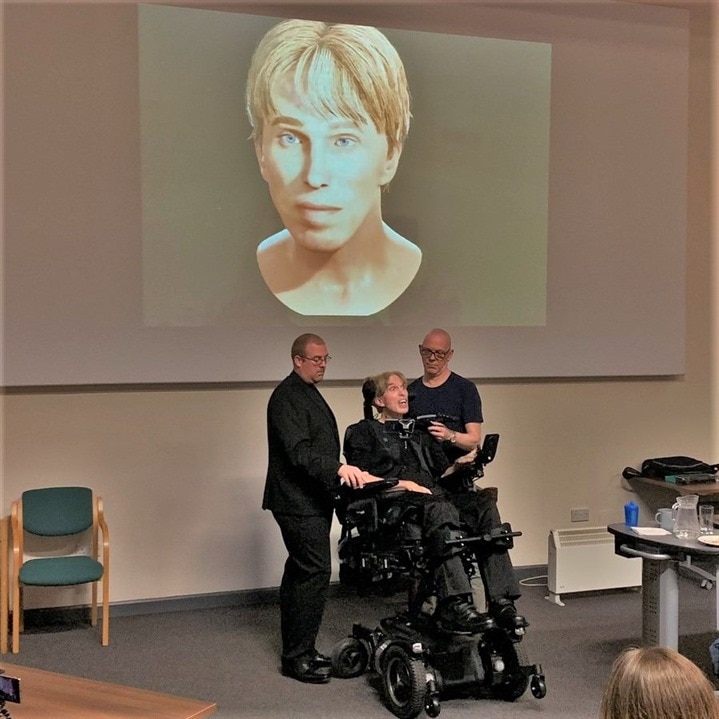
Peter Scott-Morgan, the world's first human cyborg, passed away after his 5-year battle with ALS. (Image Credit: Facebook/Peter Scott-Morgan)
English scientist Dr. Peter Scott Morgan, the world's first human cyborg, tragically passed away after fighting motor neuron disease. Morgan was diagnosed with Amyotrophic lateral sclerosis (ALS) in 2017 when doctors informed him that he only had two years to live. However, he took matters into his own hands, transforming himself into a cyborg to delay his eventual death while sharing his knowledge with those with disabilities. Working with The Rebels, a consortium of physicians, designers, and technologists, Scott-Morgan underwent various surgeries, such as a full laryngectomy. He also used tech like GPT-2, OpenAI's generative deep-learning model for text. On June 15th, his family announced Scott-Morgan's death on Twitter.
When he was 16, Scott-Morgan completed essays that dove into how his brain would connect to an electronic one, suggesting that "together we will be far more intelligent than the sum of our parts." Later in 1984, he published a book about robots and their future called "The Robotics Revolution." He also acquired a Ph.D. in robotics from the Imperial College of Science, Technology, and Medicine after earning a computer science bachelor's degree and an AI post-graduate diploma.
Scott-Morgan is well-known for his "Peter: The Human Cyborg" documentary that aired in 2020 and his Peter 2.0 book. The film followed his progress as he battled through ALS while extending his life. He also founded The Scott-Morgan Foundation, which collaborates with Intel, DXC, CereProc, and Lenovo to offer software support, hardware, integration, and AI for those with severe disabilities.
After his diagnosis, Morgan decided to undergo three surgeries: a gastrostomy, colostomy, and a cystostomy, all of which involved tuber insertion into his stomach, colon, and bladder. The "triple-ostomy" surgeries allowed him to load up on more nutrients and relieve himself without a caretaker's assistance. Afterward, he planned a total laryngectomy to prevent himself from choking on saliva or not receiving sufficient oxygen. Unfortunately, this also led to his voice box removal but ultimately extended his life.

Peter Scott-Morgan went through several surgeries to help prolong his life. (Image Credit: Facebook/Peter Scott-Morgan)
He used a synthetic version of his voice, which relies on CerePro's CereWave AI, a neural-text-to-speech system to produce a voice that sounds close to Scott-Morgan. Along with that, he wore a screen on his chest, showing his 3D animated avatar, which was scanned from his face. However, his first-gen avatar lacked smiling capabilities. So his newest AI-based avatar developed by Pinewood Studios displayed emotions he experienced, such as laughing, smiling, winking, and raising his right eyebrow.
Lenovo provided the eye-tracking headsets, cameras, and high-performance computing infrastructure for his setup. These cameras and wearable devices helped detect Scott Morgan's stress or increased vitals. The data would then be sent to his caretakers.
Ultimately, Peter wanted to revolutionize what it meant to be human. "At the moment, we are unable to evolve. Meanwhile, AI and robotics are accelerating ahead. I want us to jump aboard while we still can," he said. "We are at the early dawn of escaping the fear of becoming infirm, of being powerless, of feeling trapped in an inadequate body. Everyone on the planet, even in the poorest communities, will work closely with AI, but some of us will go far further and actually merge with AI to extend what being human means."
Have a story tip? Message me at: http://twitter.com/Cabe_Atwell
